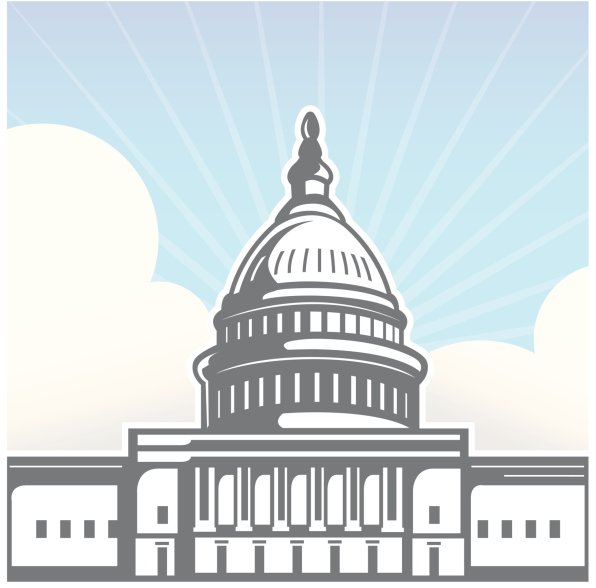
With each passing brand name mega-breach—Home Depot, Target, JPMorgan Chase, Anthem—it becomes ever more urgent for government and industry to get on the same page about how to protect consumers.
Sadly, not all laws are created equal, and there are few better examples of this homespun truth than a would-be federal law currently wending its way through Congress. And not to put too fine a point on it, the Data Security and Breach Notification Act of 2015, in its current form, has a long way to go before it should become the law of the land.
The Data Security and Breach Notification Act of 2015, “aims to tackle the nation’s growing data security threats and challenges.” So far, that sounds pretty good to me. The bill was authored by Energy and Commerce Committee Vice Chairman Marsha Blackburn (R-TN) and Rep. Peter Welch (D-VT), making it a bipartisan effort. The goal: to implement “a comprehensive plan to help safeguard sensitive consumer information and shield Americans from the harmful consequences of cyber attacks.”
I’ve written elsewhere about the need for a federal breach notification law, so in theory I’m on board. A strong federal law that requires businesses and government entities to inform people that their personal information has been compromised in a data breach can absolutely be a good thing…if it’s done right.
The problem with this proposal is that there are far more effective laws already on the books in several states, and they could be preempted were the bill to pass. If that weren’t bad enough, the proposed bill could also supersede stronger rules already put in play by the FCC with regard to telephone, broadband Internet, cable and satellite user information.
The undermining of better laws is bad, but worse is the way the Data Security and Breach Notification Act of 2015 underscores a continuing failure of our leaders to fully understand the nature of the problems we face in the mare’s nest that is consumer privacy and data security. In a widely publicized survey conducted by the Pew Research Center, “91% of adults in the survey ‘agree’ or ‘strongly agree’ that consumers have lost control over how personal information is collected and used by companies.” Data breaches, and the identity theft that flows from them, have become the third certainty in life. We need a strong federal law, but as I argued in my op-ed about the Data Breach Disclosure Box, any proposed bill that threatens to weaken existing laws has to be challenged, quickly and without equivocation.
Why It’s an Issue
Senior Policy Counsel at New America’s Open Technology Institute Laura Moy eloquently outlined the problems this bill could create in her testimony last week before the House of Representatives.
In a wide-ranging discussion of the major concerns raised by the bill, Moy pointed out some of the laws that could be preempted. One was California’s Song-Beverly Credit Card Act, which made it illegal to record a credit card holder’s personal identification information during a transaction. Another law in Connecticut outlawing the public posting of any individual’s Social Security number was also named. Both state laws represent solid advances in the realm of data security, and both might be preempted were the bill moving through Congress to succeed.
And here’s the really bad news: they would be two of the less alarming casualties.
The problem with the bill hinges on the way that it tries to separate privacy from data security, but they are inextricably intertwined. This could weaken or even eliminate protections for the many kinds of information – like your email address, for one — that fall outside the bill’s narrow definition of the personal data that is covered. That’s why this matters so much.
As Moy argued during her testimony, “Many laws that protect consumers’ personal information [can] be thought of simultaneously in terms of both privacy and security.” I will go one step further and say that I do not believe it is possible to discuss data security until we have a worst-case scenario definition of what constitutes personally identifiable information in the eyes of an identity thief.
To give an example of the kinds of preemption that are possible here, Florida’s privacy law that includes email and a consumer’s username-password combination in its definition of personal information, the logic being that consumers use the same combination for many different login pages, including financial accounts. Seven states currently mandate the same standard—California, Missouri, New Hampshire, North Dakota, Texas, Virginia—and on July 1, Hawaii and Wyoming will join them. Under the currently proposed bill, a business would not have to notify you if your email and username-password combination were involved in a breach. Meanwhile, the above kinds of information continue to be highly exploitable data points in an identity thief’s toolkit.
In addition to the exemption of breaches that “only” include email addresses or user login details, the bill is unclear about personal information related to telecommunications, cable and satellite customers, which hinge on a trigger of “authorized access,” and Moy believes it may supersede important protections created by the Communications Act. Most alarming is the prospect of less robust notifications regarding compromised customer proprietary network information (CPNI) – that includes texts, phone calls, every location where you were when you made this or that phone call, your location when you didn’t make a phone call and the location of all your network-connected devices. All this information could be breached and this proposed law says you don’t need to know about it. The same goes for what you watch on television, including any items you may have purchased on Pay-Per-View. All of it could, hypothetically, be out there open to public perusal. Every site you ever visited on line. Every call. Every text.
And what about your protected health information (PHI)? Critics note the bill doesn’t mention it, which at first blush seems like a four-alarm-fire level of non-comprehension. However, whether the product of partisan warfare or common sense, it’s actually a bit of good news. Because it has been entirely carved out here, most forms of PHI actually would still be covered by the notification requirements of the HIPPA/HITECH Act — with a few notable preemptions of existing state law affecting over-the-counter purchases and other health-related items
Defining Harm
According to the narrow logic of the proposed legislation, a breach of any of the above information will not result in financial damage, which is the reason it isn’t covered. It’s a position easily brushed aside with one mind-blowing word of refutation: Extortion. Scam artists have countless tricks up their sleeves, and the onus to anticipate the adaptive nature of crime falls on legislators. A single text or rented video could potentially ruin a person’s life, and fraudsters know that. If the wrong person has access to the above data points—and any of those bytes contain information that might harm you professionally or personally—they most certainly could be used against you for financial gain.
A recent Science study showed that with just a few data points (Instagram posts and tweets) it was possible to re-identify anonymized data about credit card purchases with the unique consumer who made them. While it may seem off the beaten path, the proposed bill, with its narrow definition of what should be covered, would not cover a glitch in Instagram’s code that revealed protected accounts to the public. For the end user unaware that their private posts were viewable, and that those posts could be used to re-identify data that is publicly available, the above hypothetical scenario featuring a “financially harmless” compromise (that revealed every purchase made on an individual’s credit card) could be a life changer—and not for the better.
What we really need in the federal government is someone in a position of authority with the expertise and knowledge to make sure anyone exposed in a breach knows about it, and is informed about the potential fallout as far as current intel permits as quickly as possible. Call this person a Breach Tzar, if you will. Since data-related crimes are often quite ingenious, isn’t it best to err on the side of caution? The fact is that any federal law aimed at protecting consumers from the danger of identity-related crime needs to be best-in-class, and far better than all the existing state laws combined, and, while it should go without saying, it must not supersede stronger existing protections afforded by non-state agencies.
There is still a yawning gulf between what’s been done so far and what needs to happen in the realm of cyber legislation. The protections we deserve are a work in progress, one that the entire constellation of consumer advocates and data-security experts must solve in concert. In the same way data-related crimes are constantly evolving, we need to get into the habit of responding to the very biggest picture we can imagine.










